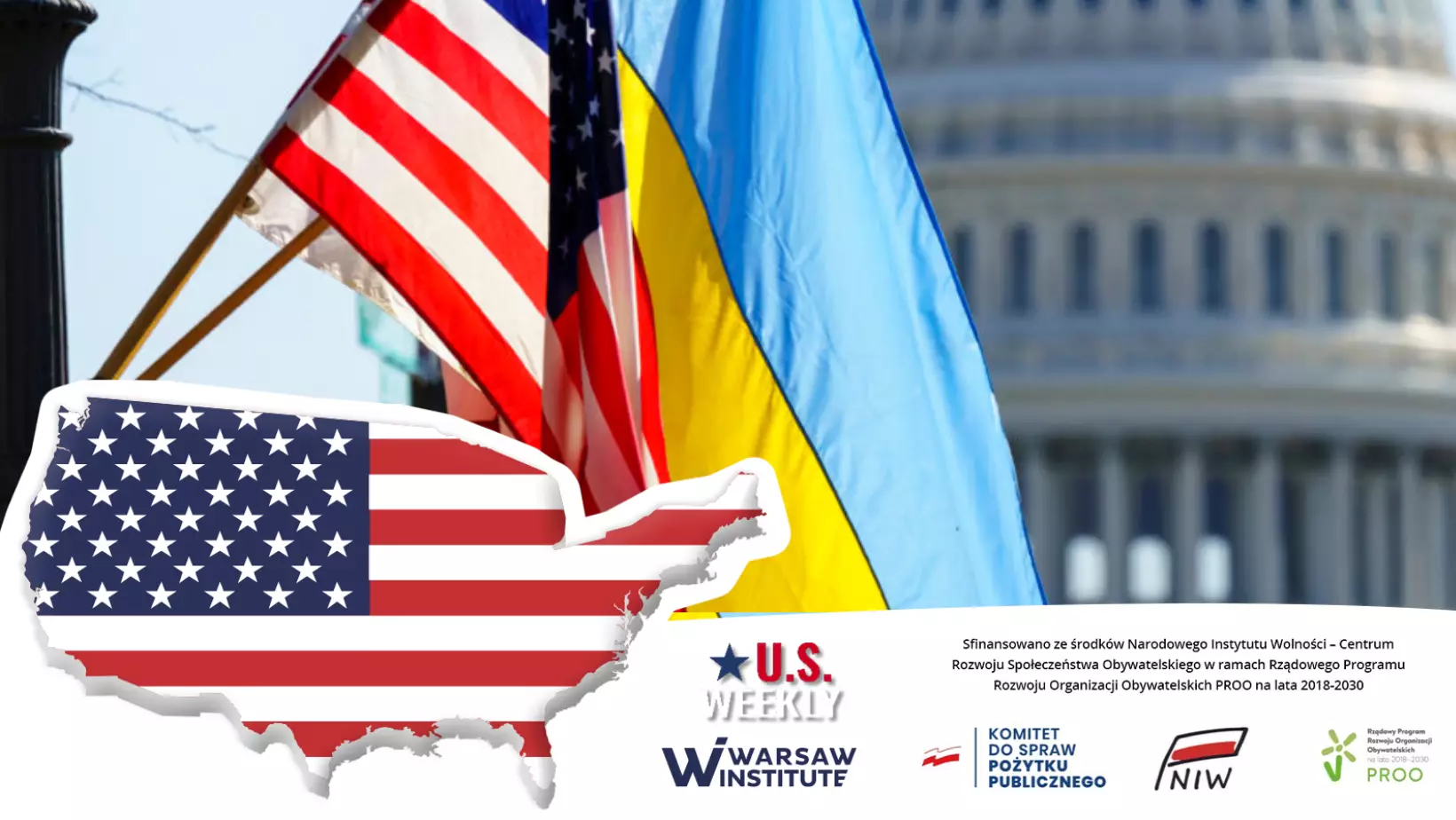
U.S. WEEKLY offers an in-depth analysis of various geopolitical processes that have direct effect on US’ domestic and foreign policies. This particular analytical column is possible thanks to the cooperation with polish media abroad: Dziennik Związkowy – Polish Daily News, Polishexpress of United Kingdom and WIrlandii.pl of Ireland
Date: 13 February 2023
The Ally We Trust. Warsaw’s Perspective On Washington And Berlin
February 24, 2022, remain a historic milestone that may mark a new chapter in the perception of international reality. This day certainly marks a particular significance for the Central and Eastern European region. From Poland’s perspective, the beginning of the full-scale Russian invasion of Ukraine was another test of allies we could trust and could not. The widespread social and political mobilization and attitude of our key partners solve the debate about security direction for Warsaw in the upcoming years.

For many years, the Polish political scene has seen a division between supporters of “Washington” and advocates of the “Berlin” direction. This dilemma was caused by the convergence of interests observed in Warsaw over the past years. The line of thinking of the supporters of Berlin’s direction is best summed up by the term “Wandel durch Handel” (eng. change through trade). This conviction is deeply rooted in the liberal assumption of building economic and political ties through trade. Security through economic linkages is deeply embedded in the policies of the Baltic States, which joined the Eurozone in 2011 (Estonia), 2014 (Latvia) and 2015 (Lithuania).
Due to its size, Warsaw is trying to bet on building an independent economic and geopolitical position. This direction was prevalent among political circles centred around Poland’s current political opposition. Moreover, cooperation between Warsaw and Berlin went well under the administration of polish prime ministers Donald Dusk and Ewa Kopacz. There is speculation that the well-established cooperation between the administration of Prime Minister Donald Tusk and Chancellor Angela Merkel may have been one of the reasons Donald Tusk became the president of the European Council in 2014.
On the other hand, after winning the 2015 parliamentary elections, the polish united political right under the domination of PIS party (Law and Justice), significance the Washington direction, began to take on special. The United States was a particular reference point for Warsaw and a key partner during Poland’s integration processes with the West after the collapse of the Eastern Bloc. However, due to the natural intercontinental distance between Poland and the United States, these countries are not crucial trading partners for each other. That is the reason why, the position of a major trading partner, specifically after Poland joined the European Union (2004), began to be played by Germans.
The annexation of Crimea by the Russian Federation and the beginning of the war in Donetsk and Donbas have raised a question Berlin’s about Berlin attitude towards European Union Eastern Partnership policy. One of the first warning signs for Warsaw was Poland’s exclusion from the Normandy format consisting of Ukraine, Russia, Germany, and France. Another of Poland’s significant objections after PIS ruling party came to power was the issue related to the Nord Stream 2 pipeline construction. This issue brought Warsaw and Washington very close. These capitals unanimously stressed the geopolitical nature of the Nord Stream 2 project. The Polish side stressed that completing the Nord Stream 2 project might be comparable with pushing Ukraine directly under a speeding Russian tank. Unfortunately, as we could see, the depth of concern over Nord Stream 2 was justified.
A symbol of the growing cooperation between Warsaw and Washington was the 2016 NATO summit in Warsaw. Since 2016 American presence in the region only rise. The Warsaw Summit is crucial for Poland because, by decisions made at the summit, the presence of the Americans in had been established in Poland. It remains crucial for the Polish side that the well-established cooperation with Washington has remained the same under either the Trump (2017) or the Biden (2022) administration. The best indication of Poland’s shifting geopolitical relations is the atmosphere in which U.S. presidents visited Poland and how the newly elected Chancellor of Germany, Olaf Scholz, was welcomed in Warsaw. Due to the German attitude toward Ukraine, Chancellor Olaf Scholz is currently enjoying deficient trust in sympathy polls in Poland.
The beginning of the full-scale Russian invasion of Ukraine and the German attitude toward helping Ukraine has led to a drastic drop in confidence in Berlin throughout the Central European region and the Baltic states. The situation in the face of a full-scale war in Ukraine has shown Poles which allies can be trusted and which cannot. Trust is the key word here for Warsaw, remembering the attitude of the allies toward Poland during World War II. Berlin’s attitude in the face of recent events in Ukraine has led Poles to reject the German option as a guarantor of geopolitical stability in Poland. Moreover, a rare political unity towards strengthening bonds with Washington made Warsaw realise that Washington remains the ally we (Poles) Trust.
Szymon Polewka International relations student at Jagiellonian University, specializing in the history of international relations, the Eurasian area, DACHL countries, intercultural relations and energy. He is currently on a scholarship at the University of Bremen. Szymon gained experience in the organization of the Economic Forum 2020 and in numerous youth organizations and study circles: AIESEC or the Scientific Circle of the Challenges of the Green Deal.
Support Us
If content prepared by Warsaw Institute team is useful for you, please support our actions. Donations from private persons are necessary for the continuation of our mission.
All texts published by the Warsaw Institute Foundation may be disseminated on the condition that their origin is credited. Images may not be used without permission.

















